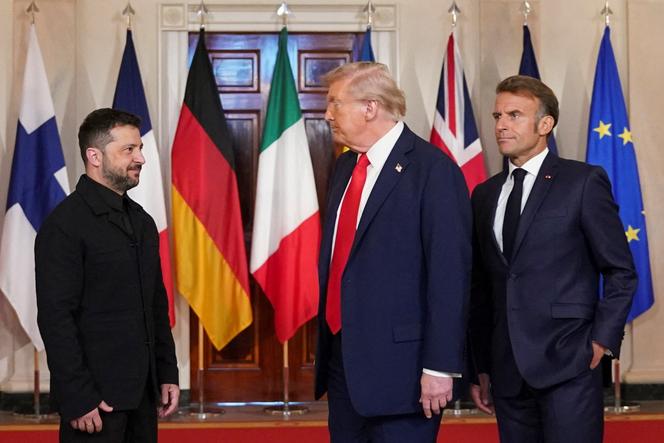

The mission was uncertain, but worth attempting. On Monday, August 18, seven European leaders rushed to Washington in an unprecedented initiative to support Ukrainian President Volodymyr Zelensky in his talks with US President Donald Trump. They hoped to convince Trump of what is at stake in Russia's war in Europe. However, they left with only vague American promises of support and no assurances of success.
"We are far from declaring victory," said French President Emmanuel Macron after several hours of talks at the White House. His statement reflected the shock felt across Europe after the August 15 Russian-American summit in Alaska, where Trump aligned himself with Russian President Vladimir Putin. In light of Monday's events, Macron's caution seemed warranted.
Regarding the critical matter of security guarantees for Ukraine in the event of a peace agreement, a topic at the forefront of discussions at the White House, Trump seemed to back away in a message posted after the meeting. While a US contribution to these guarantees was one of the few positive outcomes of the Anchorage summit, the American president clarified that the guarantees would be "provided by the various European Countries, with a coordination with the United States of America," suggesting that Washington's commitment would be less significant.
No progress appeared to have been made on another issue that has alarmed Europeans: The need for a cease-fire before opening peace negotiations with Russia. In front of Trump, Macron and German Chancellor Friedrich Merz emphasized this point, stating that they would not consider negotiations under Russian bombardment. Putin does not want a ceasefire and convinced Trump to drop the demand in Anchorage. During his meeting with the Europeans, Trump did not appear to change his mind. Unlike the Europeans, Trump continued to believe in Putin's sincerity regarding his stated desire for peace.

The thorny issue of Russia's occupation of territories in the Donbas and eastern Ukraine was not addressed, even after Trump's envoy, Steve Witkoff, had alluded to an obscure bargaining following his visit to Moscow. This suggests that any negotiation process is only in its earliest stages.
Although the American president agreed to receive this unusual delegation of European leaders with Zelensky and displayed unusual cordiality toward them, he did not commit to inviting Europe to participate in future negotiations. This has been a constant and legitimate demand of President Macron, who reiterated it on Monday, as Europe's security is also at stake. However, Trump only suggested a possible trilateral summit with the Russian and Ukrainian presidents. As for the Zelensky-Putin bilateral summit, which the Russian president has always been reluctant to hold, no mention of it was made in Moscow after Trump and Putin's telephone conversation on the sidelines of Monday's meeting with the Europeans.
Following the fiasco in Alaska, the worst has been avoided. The transatlantic front, which President Putin dreams of seeing collapse, is preserved, at least in appearance. However, significant work remains to transform the "convergence" mentioned by Macron into concrete actions to save Ukraine.
Translation of an original article published in French on lemonde.fr; the publisher may only be liable for the French version.
